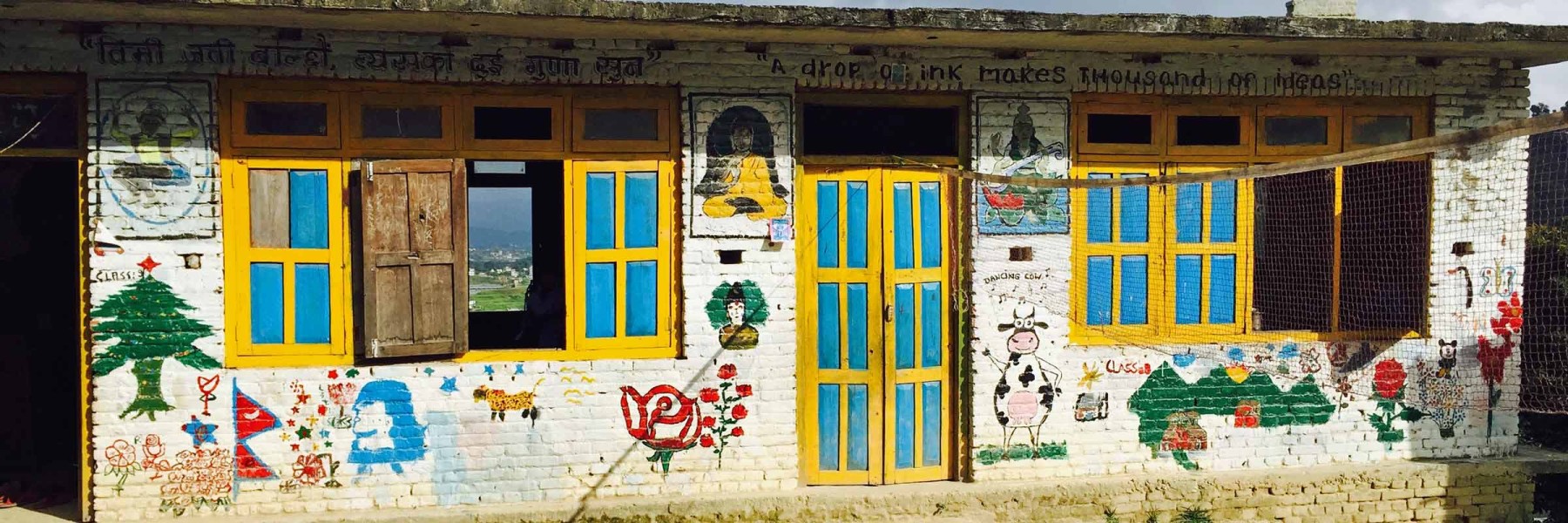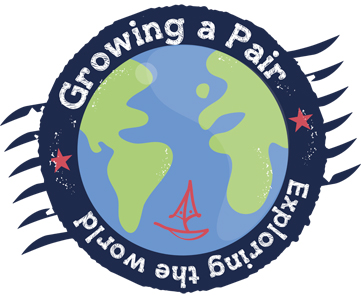
Volunteering in the Kathmandu Valley, Nepal

I’m struggling with where to start with this post. There are so many things, opinions and stories to tell that it’s difficult to know where to begin. I don’t want to write a diary type post, where I just catalogue what happened on each day, as that would have to be about 10,000 words long, and would be pretty tedious.
I think that a more important thing is to try and document how the experience has made us feel, and what it’s made us think about. I know that initially I was really very gung-ho about the whole thing. It all sounded like a bit of a laugh and incredibly worthy. I had a romantic disney-esque view of what we would be doing, and it was all based around us spending two weeks working in a reception class (Year R at home) and having a lovely time helping out in a structured program of early years education. I’d have plenty of time to be shocked at how little the kids had, and immensely impressed with how the teachers manage to do so very much with so little. Sam and Evan would get to experience a different form of school and come away with boosted confidence, self-esteem and a greater respect for everything we have at home.
The reality has been very different.
We spent a great deal of time not actually doing any volunteering at all. The three day induction was shortened to two days due to the three day Women’s festival of Teej. And then, after moving in with our fantastic host family on the Thursday, we had Friday off to celebrate the end of Teej. Saturday is always a holiday, and Sunday and Monday had been announced as special holidays to mark the signing of the new Nepali constitution. That was a whole week gone, and not a useful bit of Early Childhood Development started. But on the flip-side, we have seen some great things and enjoyed loads of time with our host family, who were just lovely. The Teej Festival was particularly entertaining, with Floss being dragged off to shake her booty with the brightly dressed women of Tinpipli at the local temple. And the day the constitution came into effect, we had an ace couple of hours celebrating with the village. We even got hold of some of the special “Constitution Bananas”, which were simply delicious. Everywhere we went, people knew that we’re with VIN and stopped to chat, or wave, or just ask us where we were from. There is a huge feeling of positivity whenever you mention VIN to the locals, so the ten years that they’ve spent working here has clearly been valued by the community.
And to be fair, we didn’t get all of the Monday off. Sam from VIN rounded up some of the village kids that he knew would be at a loose end, and dragged them into school for three hours so that we could practice our childcare skills on them. I’ve no idea how the kids viewed our efforts, but we had a great time, and came away thinking that we’d done something valuable.
All of the inactivity had given us plenty of time to look around, talk to the family, and jump to lots of conclusions – most of which were then shattered at the next meal. I guess that the starkest change in my opinions came on Monday after having had a look around the school, and being genuinely disbelieving that it could be a functioning educational establishment. Talking to the kids about it, I tried to get them to compare the classrooms here with those back at home. And basically, you can’t. The classrooms we saw were about 4 metres square, and utterly lacking in anything that resembled a classroom as we recognise them. In fact, they looked more suited to mending motorbikes than teaching kids. Over dinner, we started talking about the school, and Rupa said that the kids these days are so lucky that they have such an amazing school to go to. When she was at school (which can’t be more than ten years ago), they only had a single English book, and unsurprisingly, nobody passed their English exams. These days, practically all of the kids get English qualifications. It’s a complete turn-around in a single generation, and I think that VIN is responsible for a great deal of that. With a good grounding in English the kids have a proper opportunity to get better jobs, which obviously generates wealth, which, well, you know how the story goes. It’s all about the education the kids are receiving, not how nicely the rooms are decorated. I went to bed on Monday feeling utterly stupid.
I think that the concept I’ve struggled with since we got here is context. The distinction between the cold, bare rooms we saw at the empty school on Monday, and the crowded, noisy, vibrant classrooms full of life and kids eager to learn that confronted us on Tuesday couldn’t have been more stark.
Which is a very roundabout way to get on to the volunteering experience itself.
The school has two ECD classes with about 25 children in each, aged three to five years, and a single teacher. We had prepared games and activities for that age group, but hadn’t considered the lack of space or issues with communication. There is no outdoor space available so most of the games that we had prepared couldn’t be used. Some of the other lessons that we’d prepared didn’t fit in with the curriculum, so they couldn’t be used either, leaving us pretty unprepared for the working week.
I think that it’s fair to say that it’s been an emotional roller coaster. We had a couple of utterly brilliant days where everything fell into place, and it felt like we were born to do this and we skipped home confident in a job well done. Other days were like swimming through treacle, where nothing seemed to work with the kids, and we came home feeling utterly exhausted and demoralised. I think that the difference came from how well we could, or couldn’t, control the lesson. We clearly don’t speak enough Nepali to be useful in a classroom, and therefore needed a lot of support from the teacher. If the teacher was on form, and joined in and helped control the kids, the the time skipped by and everyone enjoyed it. If left to fend for ourselves, then we lost control of the children, the exercise dissolved into anarchy and we felt (and no doubt looked) like failures.
The children quickly adjusted to us being around though, they became much more confident around us, and started talking to us like we were proper teachers, bless them! We couldn’t communicate though, and that’s massively frustrating for us, but probably more so for them.
In conclusion, we’ve spent a huge amount of time singing and prancing about at the front of the class. I’ve really enjoyed most of it, but hated bits of it. I think that the proudest moment was the last Friday afternoon when Sam and Evan stood up infront of the class and led the children in a happy fifteen minutes of singing and dancing to the songs that we’d taught them. I know that they have both really struggled with the chaos, but it’s been a massive confidence boosting exercise for them. There’s no way that they would have done that on the first Monday morning, and when viewed in that context, the time we’ve spent working at the school can only be regarded as hugely successful.
The best part of the whole experience though, and one that we’d wholeheartedly recommend, has been living with the family. We’ve never been made to feel so welcome, and we’ve rarely had so much fun. Language never seemed to be a barrier to anything we did, and meal times were always full of enjoyment and laughter. The kids were practically adopted by the family, and were always the centre of attention. Aama spent the whole fortnight confusing me by wilfully “teaching” me incorrect Nepali phrases. When she wasn’t making fun of my pathetic language skills, Aama was messing about with “Sanubhai murkha” (idiot younger brother, i.e. Evan) and “Tuloubhai murkha” (idiot elder brother, i.e. Sam). And Floss is now officially Rupa’s little sister (which is a bit odd, as Floss had already discovered cider by the time Rupa was born). Both the boys fell in love with the freedom of living in the village, and in particular, the family goats. Sam would have been more than happy to swap Evan for Freddie the transgender baby goat (Freddie is actually a girl goat, but neither of the boys were paying attention when they christened him/her). We’re proud and honoured to be considered friends of the family, and if we get the chance when we return to Kathmandu, we’ll certainly be returning to Tinpipli.


































Hi Floss, really enjoying reading about your adventures. We’re just starting to plan for ours at the moment. I would be really interested to learn how you set up this volunteering opportunity and whether we might be able to do something similar?
Hi Heidi, We organised it through VIN (Volunteers Initiative Nepal). We wanted to choose a company that wasn’t based in the UK or US, and one where our money would go straight to the country we were volunteering in. This is certainly the case with VIN. Volunteering with VIN isn’t a holiday, you really need to have the skills for the job you apply for (we didn’t) and it’s hard work. Our two weeks with VIN were definitely the most memorable of our whole trip but make sure you apply for the right job and ask lots of questions. And don’t expect it to run smoothly. Nepal runs on Nepal time. Their website has a Family Volunteering page now, so I guess they are happy to have kids volunteering. Our boys were the first kids they had ever had as volunteers. I’m pleased we haven’t put them off! https://www.volunteersinitiativenepal.org/family-volunteering/